| In the Salisbury
Collection at SMECC we have many records by Arthur
Roberts. At the sites below there are links to download
files of this music. There are also Real Audio Streaming files also.
In The S. C. Brown collection contributed by Lois Brown and
family we have The Cyclotronist's Nightmare ( 2 sides
of record) S. C. Brown and the MITinerants) Plus- "Defendimonium",
Act 1 and 2, by Bolt -
Roberts, sung by The M. I. Tinerants and on Technicord record label in
Cambridge Mass. There are some selections in MP3 in the lyric
section.
Our collection includes the following Arthur Roberts tunes:
Defendimonium -
A "SELECTION OF SONGS" - alas not
the entire show. However, the only copy around. (Thanks to Lois Brown
and Family!)
It Ain't The Money (WMT-3 &
WMT-4) Everett W. Hall - S.U.I physics department chorus
How to be a Physicist (WMT-7 &
WMT-8) Everett W. Hall - S.U.I physics department chorus
Placement - Everett
W. Hall - S.U.I physics department chorus
Take Away Your Billion Everett W. Hall
- S.U.I physics department chorus
The Cyclotronist's Nightmare ( 2 sides
of record) Everett W. Hall - S.U.I physics department chorus
The Cyclotronist's Nightmare ( 2 sides
of record) S. C. Brown and the MITinerants)
Arthur Roberts Physics Songs Liner Notes
(Iowa Recordings)
NOTES ON THE PERFORMERS
The soloist, Everett W. Hall, is Professor
of Philosophy and Head of the Philosophy Department at the State
University of Iowa. The accompanist, and composer of the songs, and of all
the lyrics except those of "Conant, Compton and Baruch", is
Arthur Roberts, of the Physics Department at the State University of Iowa.
The chorus consists of members of the Physics Department: Professors John
A. Eldridge and Joseph M. Jauch, and graduate students L. J. Luft, Milton
Moon, Charles A. Wert, H. Bruce Phillips, and Carlton Schrader. The words
to "Conant, Compton and Baruch" were written by Professor
William Greene of the M. I. T. English Department.
The recordings were made at the studios of
Station WMT, Cedar Rapids, Iowa, on December 23, 1947.
NOTES ON THE SONGS
"The Cyclotronist's Nightmare"
was written in 1939, and is the only one of this series that has been
previously recorded. "It Ain't the Money" (1944) was written on
the occasion of the award of the Nobel Prize in Physics to I. I. Rabi, and
was first performed (by J. B. Platt) at a dinner in his honor of the
Radiation Laboratory at Cambridge in December of that year.
"Placement" (1945) was written just after the end of the war,
when the Radiation Laboratory at M. I. T. was in process of placing its
personnel in new jobs. "Take Away Your Billion Dollars" (1946)
was written while the Brookhaven National Laboratory was being planned. It
is held in some quarters that the ten billion volt accelerator now being
considered at Brookhaven was plagiarized from this song. "Conant,
Compton and Baruch" is from the operetta "Weather or Not",
or "Snow for Uncle Joe" by Katherine Bolt, William Greene, and
Arthur Roberts, which was given by the M.I.Tinerants at Cambridge in 1942.
Finally, "How Nice to be a Physicist" was commissioned by
Mariette Kuper for the Radiation Laboratory reunion party held during the
Washington meetings of the American Physical Society in May, 1947
Any resemblance to existing persons or
institutions is entirely malicious and premeditated.
Tuesday, December
1, 1942 Technology Wrestlers To Compete With Tufts
tech.mit.edu/archives/VOL_062/TECH_V062_S0214_P003.pdf
M.
I.Tinerants And
" Weather or Not"
-O Shakespeare!.
The M.I.Tinerants will present a
play, "Weather or Not" at the Peabody
playhouse on Wednesday,
Thursday, and Friday of this week.
Last year this group presented
"Defendimonium" and did a creditable
job of presenting it. The group
last year was supplemented by numerous
instructors and their wives
but many of these are no longer
with the group. This year members
of the faculty and research staff
will compose the entire cast.
The play was written jointly by
Arthur Roberts, Katherine Bolt, and
Professor William C. Greene. It is
a musical show -with songs and a
little dancing. The music was prepared
by Hassler Einzig, Director of
Music in Arlington Schools, and the
dancing will be performed by NZydoriak.
The first act of the play takes
place here at the Institute and the
second act transports the audience
to Russia. Heading the cast are
Mrs. Carole Havens awnd Zigmond
Wilehinski. President Compton,
President Conant and Bernard Baruch,
all of whom sat on a committee
recently which advised President
Roosevelt on the facts of the
rubber shortage, will be burlesqued
by Prof, S. C. Brown, Roy Prince,
and Irving Lovell.
Tie prices of the tickets are 55c
and $1.10. Almost all the tickets
have already been sold and the entire
proceeds are to go to some
charity.
|
The TECH vol.
LXII, No. 45 CAMBRIDGE,
MASS., TUESDAY, NOVEMBER 10, 1942
M.I.T. Faculty
Club Will Dine
November 18
Active Fall Program
Is Planned According
To Club Secretary
The M.I.T. Faculty Club will open
its fall social season next Wednesday
with a dinner at the Hotel
Continental in Cambridge. The dinner
will start at 6:30 P.M. and
entertainment will be furnished by
the M.I.Tinerants drama group,
under the direction of Hassler Einzig.
Dinner will be $1.75 per plate
and music will be supplied for danc-
.ing by Ken Reeves orchestra.
,According to a bulletin issued
by Mr. Pvobley D. Evans, secretary
of the club, a complete program is
planned for all members for the
coming year. Luncheon meetings
will be continued as in previous
years with interesting talks on
timely subjects by prominent men
about once every month. An opportunity
will be provided shortly
for subscription to the very popular
Faculty Club
Saturday evening dances which will
be under the direction of Mrs.
Robert S. Harris. Other activities
planned include a bowling tournament
under the direction of Mr.
J. B. Rae, sailing on the Charles
River Basin with the expert assistance
of Dr. Stockbarger and the
use of the fine fleet of dinghies
available, and squash for those interested
in strenuous exercise with
a series matches promised by Mr.
F. L. Woodruff. In addition the gymnasium
with a program under Mr.
H. P. McCarthy is available as well
as the prospect of skiing and a
snow train if Old Man Winter cooperates.
Another outstanding photographic
exhibit is also in the
offing under the F. W. Sears committee.
Membership in the club is open
to members of the Corporation, Institute
Staff and Alumni Council.
Dues in general are $2.00, but are
$1.00 for staff
|
LAST
PERFORMANCE
The TECH Vol.
LXII, No. 51 - CAMBRIDGE,
MASS., FRIDAY, DECEMBER 4,.1942
Last
Performance
Of Weather or Not
Will Be Tonight
Tonight the M. I. Tinerants will
present. for the last time, their
original musical comedy, "Weather
or Not" at the Peabody Playhouse
in Boston. The play was given on
Wednesday and Thursday to full
houses and the final performance
is expected to do as well. Tickets
are $.55 and $1.10.
The play was written by Arthur
Roberts, Katherine Bolt, and Professor
William C. Greene, and the
music was prepared by Hassler Einzig.
Director of Music in the Arlington
Schools. The east is made up
from the faculty and the research
staff.
The story deals with a group
of feminine research workers who
leave Technology and go to Russia
because they are not appreciated.
There they invent a machine for
making weather. The first trial of
this machine is witnessed by several
Institute research workers on
unofficial vacations. At first it
doesn't work, but everything turns
out all right in the end.
The part of the heroine. Dr.
Minerva. is taken by Mrs. Carole
Havens; the hero, Ivan Ivanovitch
Ivansky, a Russian Russian, is portrayed
by Zigmond Wilchinsky;
President Compton, President Conant,
and Barnard Baruch are burlesqued
by Irving Lovell, Professor
S. C. Brown, and Roy Prince. General
Beep (he runs in army circles)
is played by John Kessler. Butterfly
Higgens is Mildred Zwicker, and
the British Ambassador is John
Carpenter.
|
|
Take Away Your
Billion Dollars
by Arthur Roberts (1946)
sung by Arthur Roberts and the Chorus of
the Iowa State University Department of Physics
Up
on the lawns of Washington the physicists assemble
From all the land are men at hand, their wisdom to exchange.
A great man stands to speak, and with applause the rafters tremble.
"My
friends," says he,
"you all can see that physics now must change.
"Now in my lab we had our plans, but these we'll now expand,
Research right now is useless, we have come to understand.
We now propose constructing at an ancient Army base,
The best electro-nuclear machine in any place.
"Oh
– it will cost a billion dollars, ten billion volts ‘twill give,
It will take five thousand scholars seven years to make it live.
All the generals approve it, all the money's
now at hand,
And to help advance our program, teaching students now we've
banned."
"We
have chartered transportation, we provide a weekly dance.
Our motto's
integration, there is nothing left to chance.
This machine is just a model for a bigger one of course.
That's
the future road for physics, as I'm
sure you'll
all endorse."
And
as the halls with cheers resound and praises fill the air,
one single man remains aloof and silent in his chair.
And when the room is quiet and the crowd has ceased to cheer,
he rises up and thunders forth an answer loud and clear.
"It
seems that I'm
a failure, just a piddling dilettante.
Within six months a mere 10,000 bucks is all I've
spent.
With love and string and sealing wax was physics kept alive.
Let not the wealth
of Midas hide the gold for which we strive."It
seems that I'm
a failure, just a piddling dilettante.
Within six months a mere 10,000 bucks is all I've
spent.
With love and string and sealing wax was physics kept alive.
Let not the wealth
of Midas hide the gold for which we strive.
"Oh
– take away your billion dollars, take away your tainted gold.
You can keep your damn ten billion volts; my soul will not be sold.
Take away your army generals, their kiss is death I'm
sure.
Everything I build is mine, every volt I make is pure.
Take away your integration and let us learn and let us teach.
For beware this epidemic, for colitis I beseech.
"Oh,
dammit – engineering isn't
physics – isn't
that plain?
Take, oh take your billion dollars. Let's
be physicists again."
=======================================
Arthur Roberts later commented, "I was
impressed by the number of people who thought that it was aimed at
them."
|
|
| Excerpt from interview in Computer
Music Journal , 17:2, pp. 17-22 (Summer 1993) by Earl Dumour
Dumour: Tell us about your musical background.
Roberts: I went to music school in New York City,
where I was born and brought up. At the age of 15, after taking piano
lessons from miscellaneous private instructors for nine years, I finally
reached a place where I learned something, a school that is now known
as the Manhattan School of Music. I started there in 1927, stayed
there until 1933, when I graduated with a diploma in piano. That's
also where I met my wife, Janice. I had several piano teachers, the
last and most important of which was Rudolph Gruen. Of course, I had
all sorts of classes in ensemble playing, theory, and counterpoint. I
studied composition under Hugh Ross and Quincy Porter.
The same year I also received my master's degree in
physics from Columbia University. At that point it became necessary to
decide about my future career. Was I going to be a musician or a
physicist? I decided that professionally I'd better be a physicist. I was
a moderately good pianist, but not really good enough for the concert
stage. It looked as if I would have to resort to teaching piano.
Physics sounded like more fun that that, and I think it has been. One
of the strongest arguments for going into physics was that I could
still keep up with music as a physicist, but I couldn't keep up with
physics as a musician. Ever since then, I've been a composer.
...
Dumour: How was your musical work viewed by your
colleagues at the Argonne National Laboratories?
Roberts: Usually you'll find among scientists a
great number of people who are very fond of classical music. I had lots of
sympathy and admiration. The man who was in charge of scientific films at
Argonne, George Treseel, asked me to write computer music for his films.
So I did that. I wrote the title music for a short film called Link
that had to do with the analysis of bubble chamber photographs. He then
asked me to write the music for the full-length feature film they were
doing called The Many Faces of Argonne, which I wrote for
conventional instruments; it was recorded by members of the Chicago
Symphony Orchestra. That film won an award later that year at a film
festival in Belgium.
...
Dumour: One of the most difficult pieces of
equipment to find in the early days was a digital-to-analog converter.
Roberts: Yes, they were rare and expensive; an
8-bit DAC cost several thousand dollars...
...
Dumour: Much of your music has a humorous edge.
Roberts: Yes, especially the songs. I've written
about a hundred of them, mostly about physics. One the more popular ones
is called Take Away Your Billion Dollars. It was written after
World War II when the government was trying to entice physicists to accept
large amounts of money to build big laboratories as a result of the
success of the atomic bomb project. Many of us were not sure this was a
good idea...
|
|
| http://www.haverford.edu/physics-astro/songs/ROBERTS/roberts.htm
Click on the above link to hear some of the
songs.... we are not going to re-record them from disc since they are already
available. Go down this page for the Defendimonium.
|
|
|
Songs
About Physicists - Ernest Lawrence and the Cyclotron: AIP ...
Take Away Your Billion Dollars by Arthur Roberts
(1946) sung by Arthur Roberts
and the Chorus of the Iowa State University Department of Physics. ...
www.aip.org/history/lawrence/song.htm -
Physics
Songs by Arthur Roberts
... Prof. Arthur Roberts (of the physics
dept.) wrote all the music and words, except
as noted below. He wrote "about sixty" songs about physics
and physicists. ...
www.haverford.edu/physics-astro/ songs/ROBERTS/roberts.htm |
|
|
|
|
|
|
|
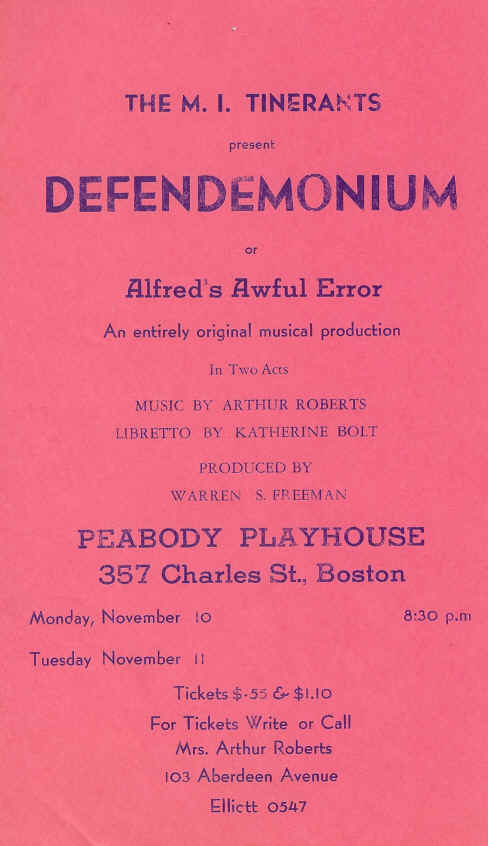
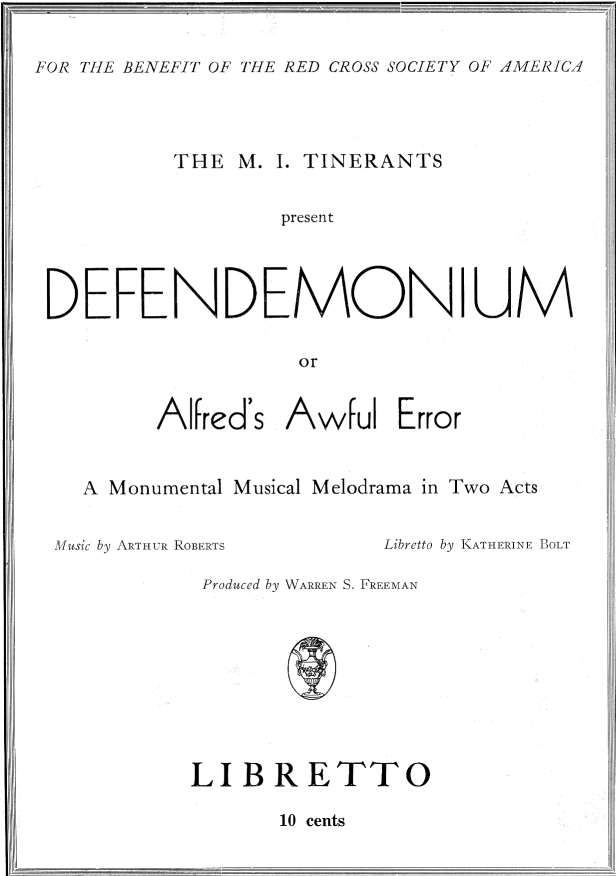
LISTEN
TO COME SELECTIONS HERE
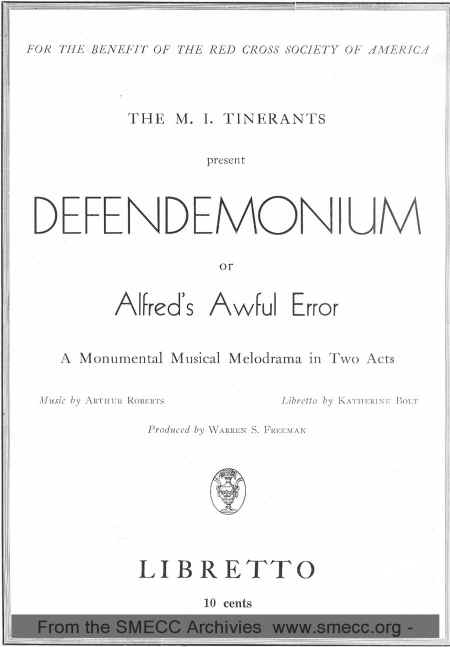
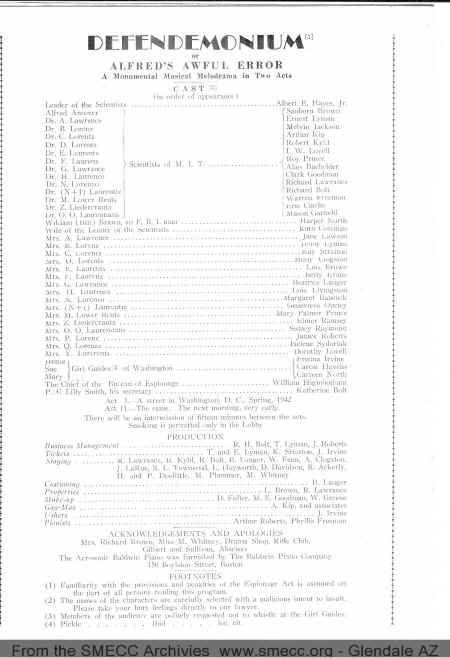
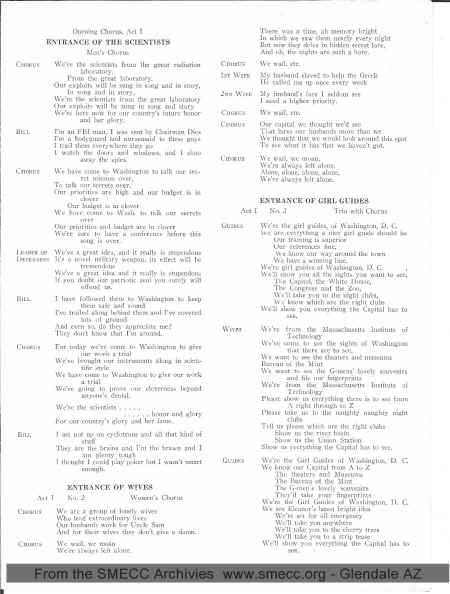
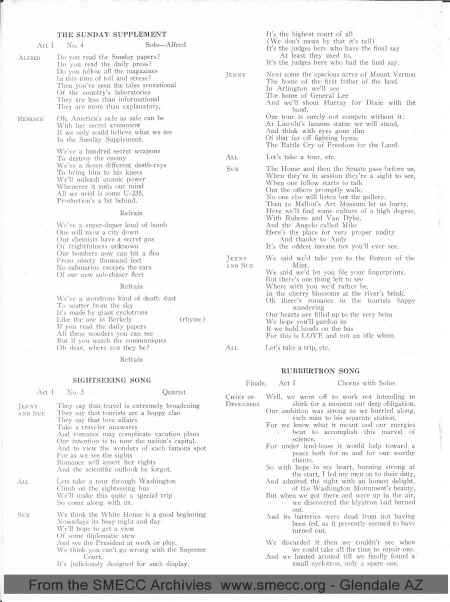
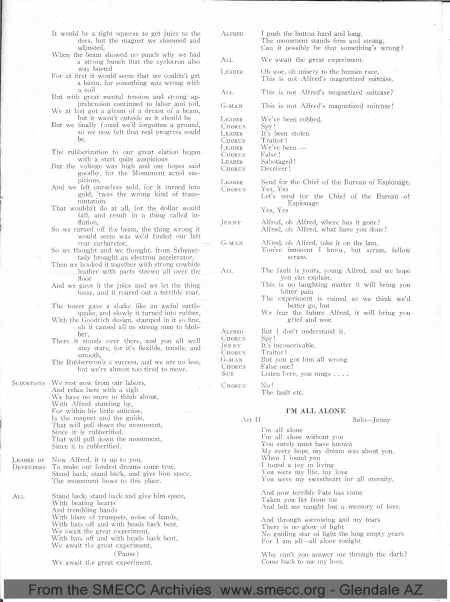
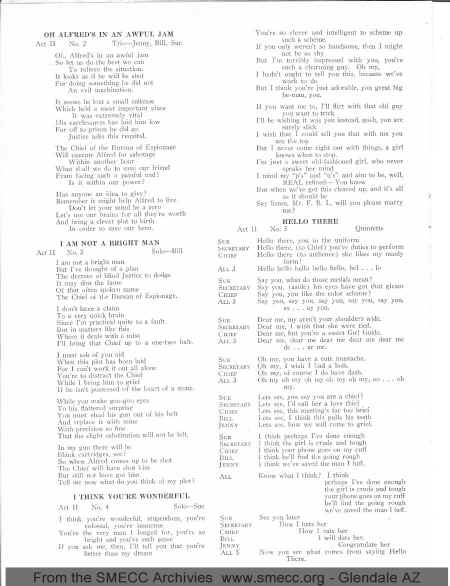
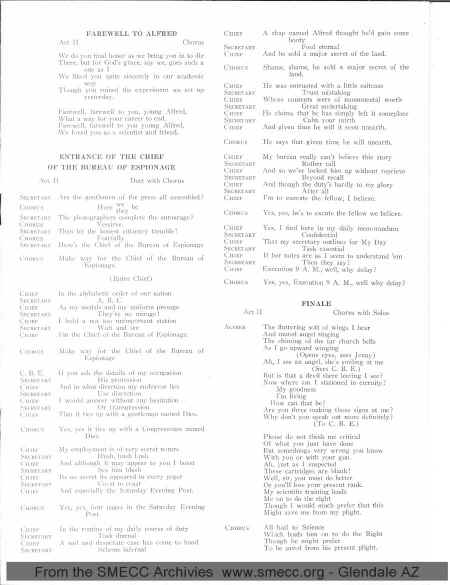
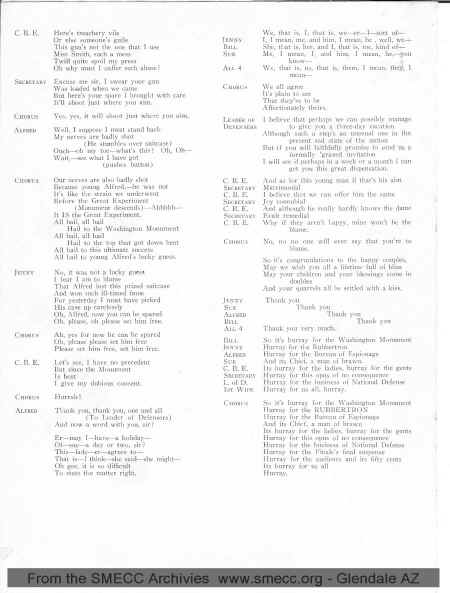
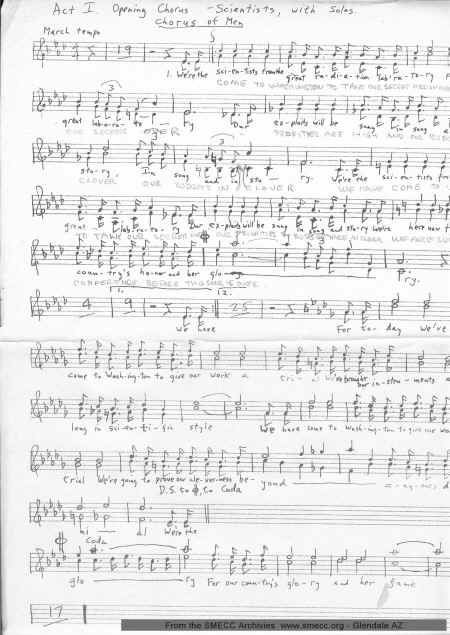
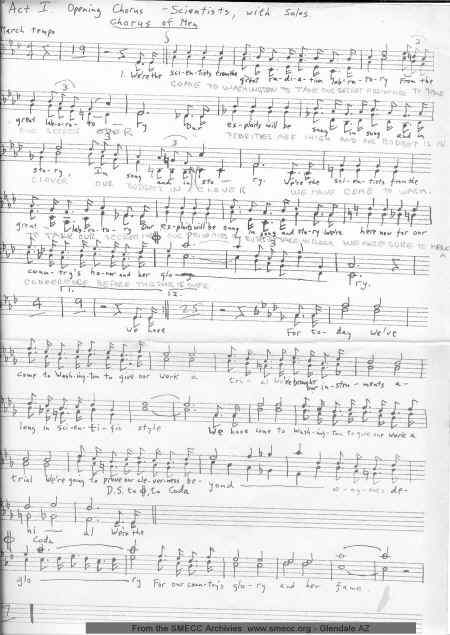
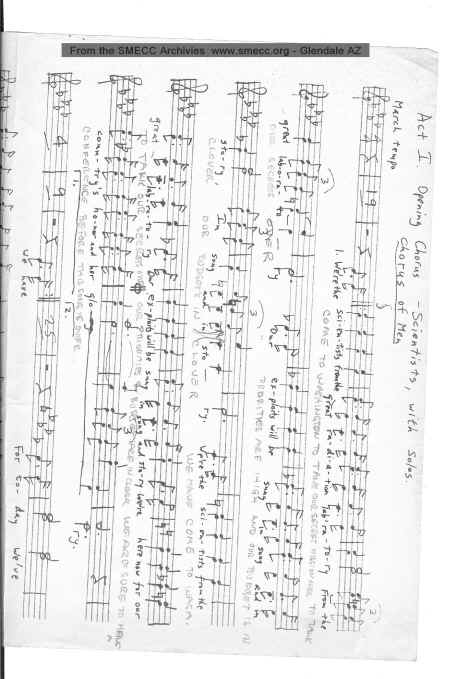
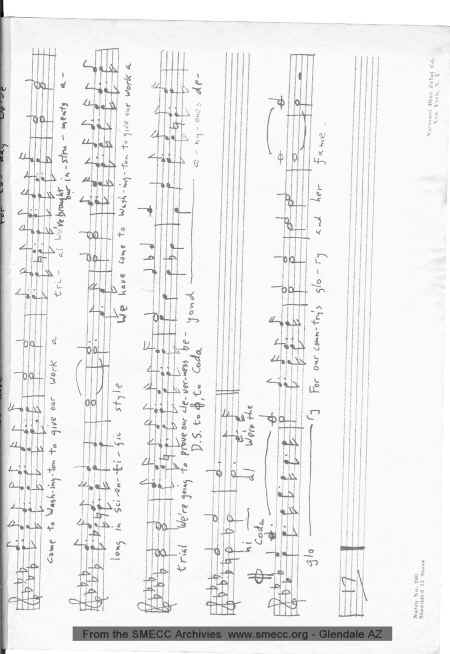
|
| |
| |
|
DR.
ARTHUR ROBERTS, 91
University of Chicago physicist, music fan
By Imran Vittachi
Tribune staff reporter
May
2, 2004
As
he did throughout much of his life, Dr. Arthur Roberts played air piano
the day he died, his fingers dancing over an imaginary keyboard.
He
was a nuclear physicist who fused science with his love of music.
Dr.
Roberts, 91, whose work in physics took him to the University of Chicago
physics department and the University of Chicago-run Argonne National and
Fermi National Accelerator Laboratories, died of Alzheimer's disease
Thursday, April 22, at his home in Honolulu. Dr. Roberts moved to Hawaii
in the late 1970s.
"He
was not a tech nerd, as most of us are," said John Learned, a former
colleague and a physics professor at the University of Hawaii. "He
was interested in art and poetry and music. He was a gentleman of the old
school."
Dr.
Roberts was born July 6, 1912, in the Bronx, the son of an Austrian
immigrant who was a labor movement organizer. In 1933, he graduated from
New York's Manhattan School of Music with a piano diploma. That same year,
he earned his master's degree in physics from Columbia University. As he
commuted by subway to classes, he played air piano, said his daughter
Judith R. Neale. The time then came for Dr. Roberts to make up his mind on
a career.
"Was
I going to be a musician or a physicist?" Dr. Roberts mused in a 1993
interview with Computer Music Journal. "I was a moderately good
pianist, but not really good enough for the concert stage ... One of the
strongest arguments for going into physics was that I could still keep up
with music as a physicist, but I couldn't keep up with physics as a
musician."
Dr.
Roberts lived up to his words. While becoming a respected physicist over
the years, he kept at his music, composing songs with scientific themes.
Some of his songs and lyrics have been posted on the Internet in his
honor. Titles include "The Cyclotronist's Nightmare (or Eighty
Millicuries by Half-Past Nine)" and "Take Away Your Billion
Dollars."
During
their days in the Chicago area in the 1960s and '70s, Dr. Roberts and his
wife, Janice, were key in the founding of the Music Theater of Hyde Park,
said his daughter.
She
recalled how her parents would take her to Long Island clambakes with
eminent scientists and Nobel laureates who worked at the Brookhaven
National Laboratory. They would jam together with their instruments, she
said.
Dr.
Roberts developed radar technology with a team of Massachusetts Institute
of Technology scientists. He helped put the technology to use during World
War II by flying to Britain when that country was fending off constant
raids by Germany's Luftwaffe forces.
Other
survivors include a son, Richard M. Roberts; a sister, Vivian R. Moss; and
four grandchildren. A memorial concert featuring the scientist's songs
will be held in Honolulu at a date to be determined.
Copyright
© 2004, Chicago Tribune
|
CLOUD-CHAMBER BOWLS
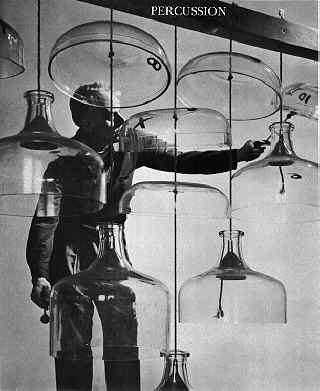 |
 |
There was a song on
Salisbury's record
in the archive called Cloud Chamber...
it may be due to the instrument used! |
 |
Winfield Salisbuy had a collection of 78's
by Harry Partch
-- iconoclastic
American composer
These records are on RADIO
RECORDERS label.
Here is more abut them. I
need to digitize - and listen!
http://www.corporeal.com/cm_main.html#sounds
|
| BUILT: |
1950-1951, near Gualala, and at Mills College, California. |
| SIZE: |
The rack is 7 feet long, 6 feet high. |
| MATERIALS: |
Redwood frame, glass carboys, rope. and funnels for suspension
purposes. |
| TONES: |
From 10 to 12 tops and bottoms of 12-gallon Pyrex carboys (the
bottoms are inverted). At the University of California Radiation
Laboratory, at one time, centers were cut from such carboys for use
in "cloud-chamber" experiments. Played on the edges with
small soft mallets, also on the flat tops. The bowls give a
bell-like tone, and each has at least one inharmonic overtone. When
one of them breaks it is virtually impossible to find an exact
duplicate. |
|
| |
|
















